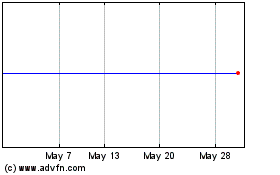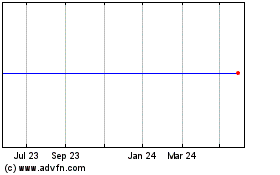NOVARTIS AG CHF0.50(REGD) Novartis Provides Update On Luster Phase Iii Studies In Patients With Uncontrolled Gina 4/5 Asthma
December 16 2019 - 12:15AM
UK Regulatory
TIDMNOVN
-- Pooled analyses of LUSTER 1 and 2 did not support further development of
Fevipiprant in asthma as a primary indication
-- Fevipiprant was well tolerated with adverse events balanced across
treatment groups
Basel, Switzerland, December 16, 2019 -- Novartis today announced
topline results from its pivotal global Phase III LUSTER-1(1) and
LUSTER-2(2) studies exploring the efficacy and safety of the
investigational oral, once-daily, DP(2) receptor antagonist fevipiprant
(QAW039). The pooled analyses of the LUSTER trials did not meet(3) the
clinically relevant threshold for reduction in rate of moderate
-to-severe exacerbation compared to placebo over a 52-week treatment
period for either of the doses (150mg / 450 mg). The studies included
patients who had inadequately controlled moderate-to-severe asthma (GINA
Steps 4 and 5) despite receiving inhaled mid-to-high dose
corticosteroids (ICS) and at least one additional controller. The
totality of these results do not support further development of
fevipiprant in asthma.
Fevipiprant was generally well tolerated, with treatment-emergent
adverse events generally balanced across groups and comparable to
placebo(3) . Detailed efficacy and safety data from the LUSTER-1 and
LUSTER-2 studies are being analyzed and will be submitted for
presentation at an upcoming medical congress.
"While the results of the LUSTER studies with fevipiprant are
disappointing, they meaningfully contribute to our understanding of the
DP(2) pathway in asthma. We are incredibly grateful to all the patients,
their families and the investigators who participated in the studies and
contributed greatly to this research," said John Tsai, Head Global Drug
Development and Chief Medical Officer, Novartis.
The pivotal replicate LUSTER-1(1) and LUSTER-2(2) studies are part of
the VIBRANT Phase III program, which also includes the SPIRIT(4) safety
study and the supplemental replicate ZEAL-1(5) and ZEAL-2(6) studies.
Topline results from ZEAL-1 and ZEAL-2 were announced in October 2019.
Novartis continues to invest into respiratory medicines with in-market
products Xolair(R)7 (severe allergic asthma [SAA] and chronic
spontaneous urticaria [CSU]), Ultibro(R) Breezhaler(R) (8) (COPD), Phase
III investigational products QVM149(9) (moderate-to-severe asthma), and
QMF149(10) (moderate-to-severe asthma), as well as active research
programs covering asthma, COPD and other areas of high unmet need, such
as idiopathic pulmonary fibrosis and sarcoidosis.
About Fevipiprant
Fevipiprant is an investigational, novel, steroid-free once-daily pill.
It blocks the DP(2) pathway(11) , a potentially important regulator of
the asthma inflammatory cascade(12) .
About LUSTER-1 and LUSTER-2(1,2)
LUSTER-1 and LUSTER-2 (CQAW039A2307, NCT02555683 and CQAW039A2314,
NCT02563067) were 52-week, randomized, multi-center, double-blind,
placebo-controlled, replicate Phase III studies in patients with
moderate-severe asthma. The patient population included 894 (LUSTER-1)
and 877 (LUSTER-2) patients aged >=12 years, all of whom suffer from
inadequately controlled moderate-severe asthma, receiving Global
Initiative for Asthma(13) (GINA) Steps 4 and 5 standard-of-care (SoC)
asthma therapy: inhaled mid-to-high dose corticosteroids (ICS) and at
least one additional controller. Recruitment was stratified based on
blood eosinophil counts at Visit 1, so that approximately two-thirds of
randomized patients had a blood eosinophil count >=250 cells/<MU>l and
one-third had a blood eosinophil count <250 cells/<MU>L, to determine
the effect of fevipiprant across patients with varying eosinophil
levels. Patients were randomized (1:1:1) to receive either fevipiprant
150 mg, fevipiprant 450 mg or placebo once daily.
The aim of these studies was to determine the efficacy, safety and
tolerability of fevipiprant in addition to the current standard-of-care
for severe asthma patients.
The primary endpoint for the replicate LUSTER-1 and LUSTER-2 studies was
the reduction of the annual rate of moderate--to--severe exacerbations
over a 52--week treatment period in patients with moderate-to-severe
uncontrolled asthma and high levels (>= 250 cells/uL) of a type of white
blood cell called eosinophils. The rate of reduction in all patients
independent of blood eosinophil level was also studied as part of the
primary endpoint.
Secondary endpoints included change in asthma quality of life (as
measured by the Asthma Quality of Life Questionnaire [AQLQ] for people
12 years and older), asthma control (measured via Asthma Control
Questionnaire--5), and lung function (measured via FEV1) over the
52--week treatment period in patients with high blood eosinophil counts
(>=250 cells/<MU>l) and in all patients independent of blood eosinophil
level.
Safety of fevipiprant in terms of adverse events, electrocardiograms,
vital signs and laboratory tests was also assessed.
About Moderate-to-Severe Asthma
The severity of asthma ranges between mild, moderate and severe, with
more severe asthma requiring more treatment (higher dose or stronger
medication) to control symptoms and exacerbations. According to the the
Global Initiative for Asthma (GINA) stepwise approach to asthma
treatment, patients between Step 3 and Step 5 are considered
moderate-to-severe(13) .
Despite the availability of standard-of-care asthma treatments for the
moderate-to-severe asthma patients, over 45% at GINA Step 4 and 5 remain
uncontrolled(14) . These uncontrolled asthma patients often downplay or
underestimate the severity of their asthma by tolerating their symptoms
and accepting the severe impact of their disease on their quality of
life(15) . These patients are at an increased risk of experiencing a
severe exacerbation, hospitalization, or death(15,16,17) .
Disclaimer
This press release contains forward-looking statements within the
meaning of the United States Private Securities Litigation Reform Act of
1995. Forward-looking statements can generally be identified by words
such as "investigational," "being analyzed," "will," "upcoming,"
"committed," "potentially," "aim," "potential," "ambition," or similar
terms, or by express or implied discussions regarding potential
marketing approvals, new indications or labeling for fevipiprant, Xolair,
Ultibro Breezhaler, QVM149 or QMF149, or regarding potential future
revenues from such products. You should not place undue reliance on
these statements. Such forward-looking statements are based on our
current beliefs and expectations regarding future events, and are
subject to significant known and unknown risks and uncertainties. Should
one or more of these risks or uncertainties materialize, or should
underlying assumptions prove incorrect, actual results may vary
materially from those set forth in the forward-looking statements. There
can be no guarantee that the investigational or approved products
described in this press release will be submitted or approved for sale
or for any additional indications or labeling in any market, or at any
particular time. Nor can there be any guarantee that such products will
be commercially successful in the future. In particular, our
expectations regarding such products could be affected by, among other
things, the uncertainties inherent in research and development,
including clinical trial results and additional analysis of existing
clinical data; regulatory actions or delays or government regulation
generally; global trends toward health care cost containment, including
government, payor and general public pricing and reimbursement pressures
and requirements for increased pricing transparency; our ability to
obtain or maintain proprietary intellectual property protection; the
particular prescribing preferences of physicians and patients; general
political and economic conditions; safety, quality, data integrity or
manufacturing issues; potential or actual data security and data privacy
breaches, or disruptions of our information technology systems, and
other risks and factors referred to in Novartis AG's current Form 20-F
on file with the US Securities and Exchange Commission. Novartis is
providing the information in this press release as of this date and does
not undertake any obligation to update any forward-looking statements
contained in this press release as a result of new information, future
events or otherwise.
About Novartis in Respiratory
Over the last 60 years, there have been two breakthroughs in asthma care,
inhalers in the 1960s and more recently biologics. They have helped
patients with asthma cope with their condition, but a majority are still
suffering from exacerbations and symptoms, severely affecting their
quality of life. The Novartis ambition is to reimagine asthma care.
Novartis is a leading respiratory company that drives novel advances to
improve the lives of those living with lung conditions around the world.
Through courageous innovation and close partnership with patients and
medical experts, Novartis is committed to solving the unmet needs in
asthma management, improving treatment outcomes for chronic obstructive
pulmonary disease (COPD) and other respiratory diseases.
About Novartis
Novartis is reimagining medicine to improve and extend people's lives.
As a leading global medicines company, we use innovative science and
digital technologies to create transformative treatments in areas of
great medical need. In our quest to find new medicines, we consistently
rank among the world's top companies investing in research and
development. Novartis products reach more than 750 million people
globally and we are finding innovative ways to expand access to our
latest treatments. About 109,000 people of more than 140 nationalities
work at Novartis around the world. Find out more at
www.novartis.com.
Novartis is on Twitter. Sign up to follow @Novartis at
http://twitter.com/novartis
For Novartis multimedia content, please visit
www.novartis.com/news/media-library
For questions about the site or required registration, please contact
media.relations@novartis.com
References
1. Clinicaltrials.gov.
https://clinicaltrials.gov/ct2/show/NCT02555683. Last accessed: Dec
2019.
2. Clinicaltrials.gov.
https://clinicaltrials.gov/ct2/show/NCT02563067. Last accessed: Dec
2019.
3. Novartis Data on file.
4. Clinicaltrials.gov.
https://clinicaltrials.gov/ct2/show/NCT03052517. Last accessed Dec 2019.
5. Clinicaltrials.gov.
https://clinicaltrials.gov/ct2/show/NCT03215758. Last accessed: Dec
2019.
6. Clinicaltrials.gov.
https://clinicaltrials.gov/ct2/show/NCT03226392. Last accessed: Dec
2019.
7. In the US, Novartis and Genentech, Inc. work together to develop
and co-promote Xolair. Outside the US, Novartis markets Xolair and
records all sales and related costs.
8. Glycopyrronium bromide and certain use and formulation
intellectual property were exclusively licensed to Novartis in April
2005 by Sosei Heptares and Vectura.
9. Glycopyrronium bromide and certain use and formulation
intellectual property were exclusively licensed to Novartis in April
2005 by Sosei Heptares and Vectura. Mometasone furoate is exclusively
licensed to Novartis from a subsidiary of Merck & Co., Inc., Kenilworth,
NJ, USA, for use in QVM149 (Worldwide excluding US).
10. Mometasone furoate is exclusively licensed to Novartis from a
subsidiary of Merck & Co., Inc., Kenilworth, NJ, USA, for use in QMF149.
11. Gonem S, et al. Fevipiprant, a prostaglandin D2 receptor 2
antagonist, in patients with persistent eosinophilic asthma: a
single-centre, randomised, double-blind, parallel-group,
placebo-controlled trial. Lancet Respir Med 2016;4(9):699-707.
12. Domingo C, et al. The prostaglandin D2 receptor 2 pathway in
asthma: a key player in airway inflammation. Respir Res
2018;19(1):189-196.
13. Global Initiative for Asthma -- GINA 2019.
https://ginasthma.org/wp-content/uploads/2019/01/GINA-Implementation-Toolbox-2019.pdf
Last accessed: Dec 2019
14. Fang J, et al. Demographic, Clinical Characteristics and Control
Status of Pediatric, Adolescent and Adult Asthma Patients by GINA Step
in a US Longitudinal Cohort. Am J Resp Crit Care Med 2018;197:A53.
15. Katsaounou P, et al. Still Fighting for Breath: a patient survey of
the challenges and impact of severe asthma. ERJ Open Res
2018;4(4):00076.
16. Peters SP, et al. Uncontrolled asthma: a review of the prevalence,
disease burden and options for treatment. Respir Med
2006;100(7):1139-1151.
17. Price D, et al. Asthma control and management in 8,000 European
patients: the REcognise Asthma and LInk to Symptoms and Experience
(REALISE) survey. NPJ Prim Care Respir Med 2014(24):14009.
# # #
Novartis Media Relations
Central media line: +41 61 324 2200
E-mail: media.relations@novartis.com
Peter Züst Phil McNamara
Novartis Global External Communications Global Head, Respiratory Communications
+41 79 899 9812 (mobile) +1 862 274 5255 (mobile)
peter.zuest@novartis.com philip.mcnamara@novartis.com
Eric Althoff
Novartis US External Communications
+1 646 438 4335
eric.althoff@novartis.com
Novartis Investor Relations
Central investor relations line: +41 61 324 7944
E-mail: investor.relations@novartis.com
Central North America
Samir Shah +41 61 324 7944 Richard Pulik +1 862 778 3275
Pierre-Michel Bringer +41 61 324 1065 Cory Twining +1 862 778 3258
Thomas Hungerbuehler +41 61 324 8425
Isabella Zinck +41 61 324 7188
(END) Dow Jones Newswires
December 16, 2019 01:15 ET (06:15 GMT)
Copyright (c) 2019 Dow Jones & Company, Inc.
Novartis (LSE:0K9E)
Historical Stock Chart
From Dec 2024 to Jan 2025

Novartis (LSE:0K9E)
Historical Stock Chart
From Jan 2024 to Jan 2025
